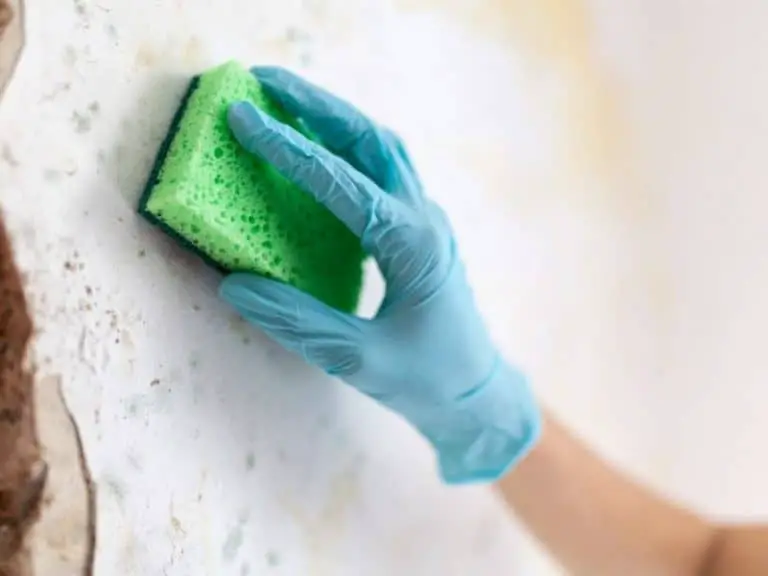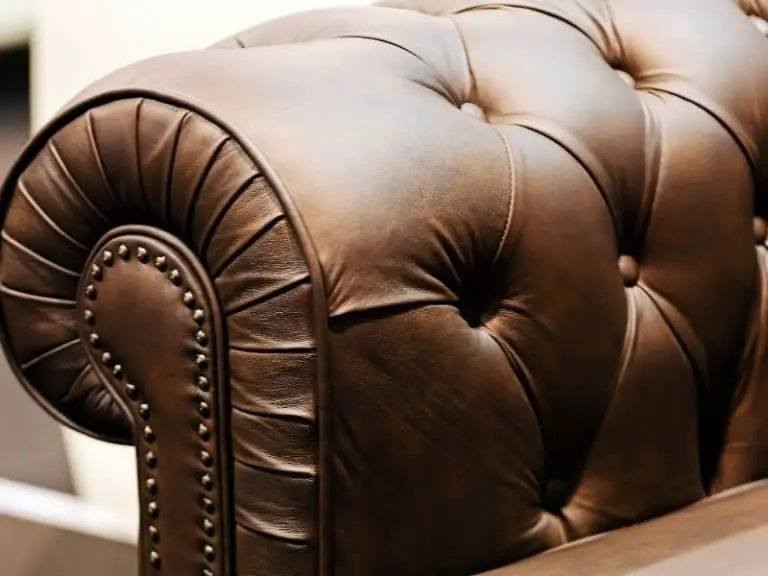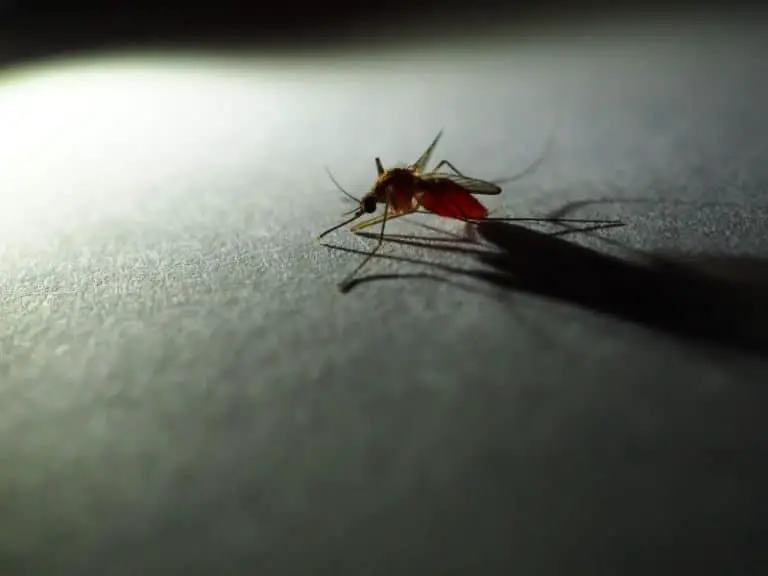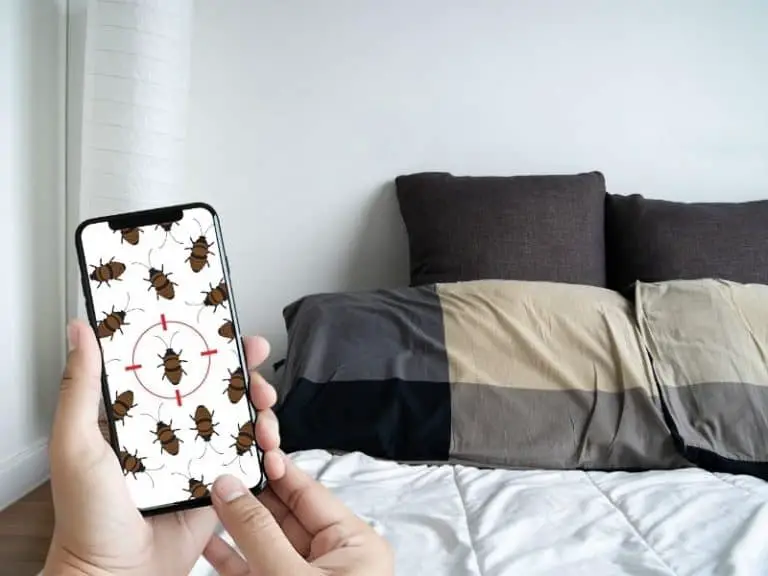Do Bed Bugs Like Or Hate Lavender?
Lavender is an aromatic plant, and it is quite popular in the world of aromatherapy. In essential oil form, its smell not only pleases the nose but reduces stress and anxiety, too. Lavender essential oil is also a well-known home remedy for insomnia.
This is why it can be surprising to learn that something as nice-smelling and beneficial as lavender can be used for dealing with a bed bug infestation through the DIY approach.
So, do bed bugs like lavender?
Lavender’s smell is overpowering for bed bugs, which is why it can be used as a repellent. It causes bed bugs to come out of their hiding places and crawl away until they can no longer smell it. Lavender also works as an insecticide because bed bugs hate it as it is poisonous for them.
You can easily get your hands on lavender in various forms if you want to test its ability to put a bed bug infestation under control. It can serve as either a repellent or pesticide, depending on the form and how you use it.
However, lavender is only effective for mild cases of bed bug infestation, or while you are waiting for professional bed bug exterminators to carry out their job. In other words, you can think of lavender as first aid for bed bugs.
Remember to share this article on social media once you get to the end, especially if you have family members and friends who are on the hunt for some all-natural remedies for bed bugs.
Lavender as a DIY Solution for Bed Bug Infestation
Having a bottle of lavender essential oil air freshener in your room means you own a chemical-free product for bed bugs. All you have to do is spray it where bed bugs tend to hide when they are not feeding.
During the day, bed bugs go into hiding in the cracks and seams of your bed frame and headboard. Many of them catch some shut-eye near the piping, seams, and labels of your mattress and box spring.
Basically, any area that their flattened bodies can allow them to fit in easily can serve as their hiding places.
Refrain from assuming that, because of their name, bed bugs can hide in and around the bed only. According to experts, there are many places where bed bugs can take cover:
- Behind peeling wallpapers
- Cracks in walls
- Electrical outlets
- Light switches
- Curtains and drapes
- Upholstered and wooden furniture
- Tiny gaps between floorboards
- Under the carpet
Because bed bugs can hide in many places, they can be challenging to exterminate even by the pros!
Eliminating Clutter Beforehand is Recommended
The good news is that you can use lavender to get rid of bed bugs. The best way to do so is by arming yourself with a spray bottle of lavender essential oil and then spraying generous amounts of it where bed bugs tend to hide.
Usually, bed bugs do not hide far away from your bed. They want to be able to crawl back to your bed in the early morning to feed on your blood.
Due to this, you should concentrate on spraying lavender essential oil in the right places. By the way, you can make a DIY lavender spray by diluting the pure lavender essential oil with water.
It is important for lavender to come into contact with bed bugs. Otherwise, you won’t see any results.
Before spraying away, make sure that you remove as much clutter as you can. This allows potential hiding places to get exposed, allowing you to douse them with lavender essential oil spray.
Of course, you should avoid spraying electrical outlets and light switches with it!
Getting rid of clutter is a must not only for making lavender more effective for getting rid of bed bugs, but also keeping them from coming back to mess with your life all over again.
Repellent vs. Pesticide: Know the Difference
If you research online about dealing with a bed bug infestation with lavender, you may notice one thing that may leave you confused. Some people refer to lavender as a repellent, while others consider it as a pesticide.
Well, here’s the deal: Lavender can both be a bed bug repellent and insecticide, depending on the type.
A repellent is something that repels or drives away insects. Usually, it is the scent that is making bugs go away and live elsewhere. In other words, a repellent does not kill insects.
Lavender serves as a bed bug repellent if you use real lavender flowers, either fresh or dried. The same is true if you go for powdered lavender, which you can buy in bulk.
Lavender flowers or powdered lavender can only drive away bed bugs as those creepy crawlers can only smell them.
On the other hand, lavender works as a pesticide if it comes in essential oil form that you can spray, like an insecticide in an aerosol bottle or spray.
Since it comes in liquid form, the lavender essential oil can be ingested by bed bugs, poisoning them. Sometimes, it is enough for a concentrated form of lavender essential oil to kill bed bugs upon contact.
The bottom line is: Lavender can either be a repellent or pesticide. And knowing how you want to get rid of bed bugs (ward off or kill them) is the first step when choosing which type of lavender to use.
Pillows and Comforters Filled With Dried Lavender
Earlier, it was mentioned that, in aromatherapy, the lavender essential oil is popular for dealing with stress, anxiety, and insomnia.
Because there are a lot of people who are experiencing all of these issues in this busy day and age, there are lavender-filled pillows and comforters available in the current market.
If you are sharing your bed with bed bugs, you may consider using these products as your sleep companions.
Although the fillings won’t come into contact with bed bugs, they can make them go away. The fillings, by the way, are usually dried lavender flowers and leaves. Most of the time, they are mixed with other filling materials.
Needless to say, lavender-filled pillows and comforters are bed bug repellents, not insecticides.
They can help keep bed bugs from biting your face, arms, legs, and other body parts that are in contact with them as you sleep.
Unfortunately, bed bugs will simply look for a different place to live in or a different person to feast on.
If there are pillows and comforters with lavender in them available from a store, chances are that the vendor is also selling lavender aromatherapy candles that can fill your room with the soothing fragrance of lavender.
Sadly, lavender-scented candles are only great for making your room smell great, not driving away bed bugs.
Just Before You Get Your Hands on Lavender Products
Lavender can help reduce your stress and anxiety levels. It can also help you get a good night’s sleep. On the other hand, it can be a nightmare to bed bugs.
Those blood-sucking insects cannot stand its smell, and that is why they go away. Ingestion of lavender can mean death for bed bugs as it is toxic for them.
Using lavender as a repellent or insecticide has its limitations. For instance, it may yield satisfactory results if the bed bug infestation is mild only.
It may not be the best home remedy for moderate to severe bed bug infestation. That’s because you will need lots of lavender, which can leave a hole in your pocket.
Lavender, particularly pure lavender essential oil, does not come cheap. Also, using a lot of lavender may be too powerful for the nose. Instead of smelling adorable, your room may end up smelling abominable. Too much can repel both bed bugs and you.
If it seems like lavender is not giving you the results that you want, you may try another DIY solution. Or you may get in touch with a reliable bed bug exterminating company in your area.
Related Questions
Can I apply lavender oil on my body to keep bed bugs from biting?
Never apply pure essential oil on the skin as it may cause irritation. It may also poison you if large amounts of it get to the bloodstream via the skin. Before applying, dilute the lavender essential oil with a carrier oil, preferably one without a strong smell.
Is lavender essential oil powerful enough to destroy bed bug eggs?
According to some studies, lavender oil is incapable of destroying bed bug eggs, which is why a recurrence of the infestation may happen. You may try exterminating bed bug eggs with other home remedies, such as the use of diatomaceous earth.
Photo credit: ©canva.com/Amy_Lv
Medical Disclaimer: TheHomePestControl is a digital publisher and does not offer personal health or medical advice. The contents of this website are not intended to substitute for professional medical advice, diagnosis, or treatment.
Affiliate Disclaimer: As an Amazon Associate, I earn from qualifying purchases made on our website. If you make a purchase through links from this website, I may earn a commission at no additional cost to you.






